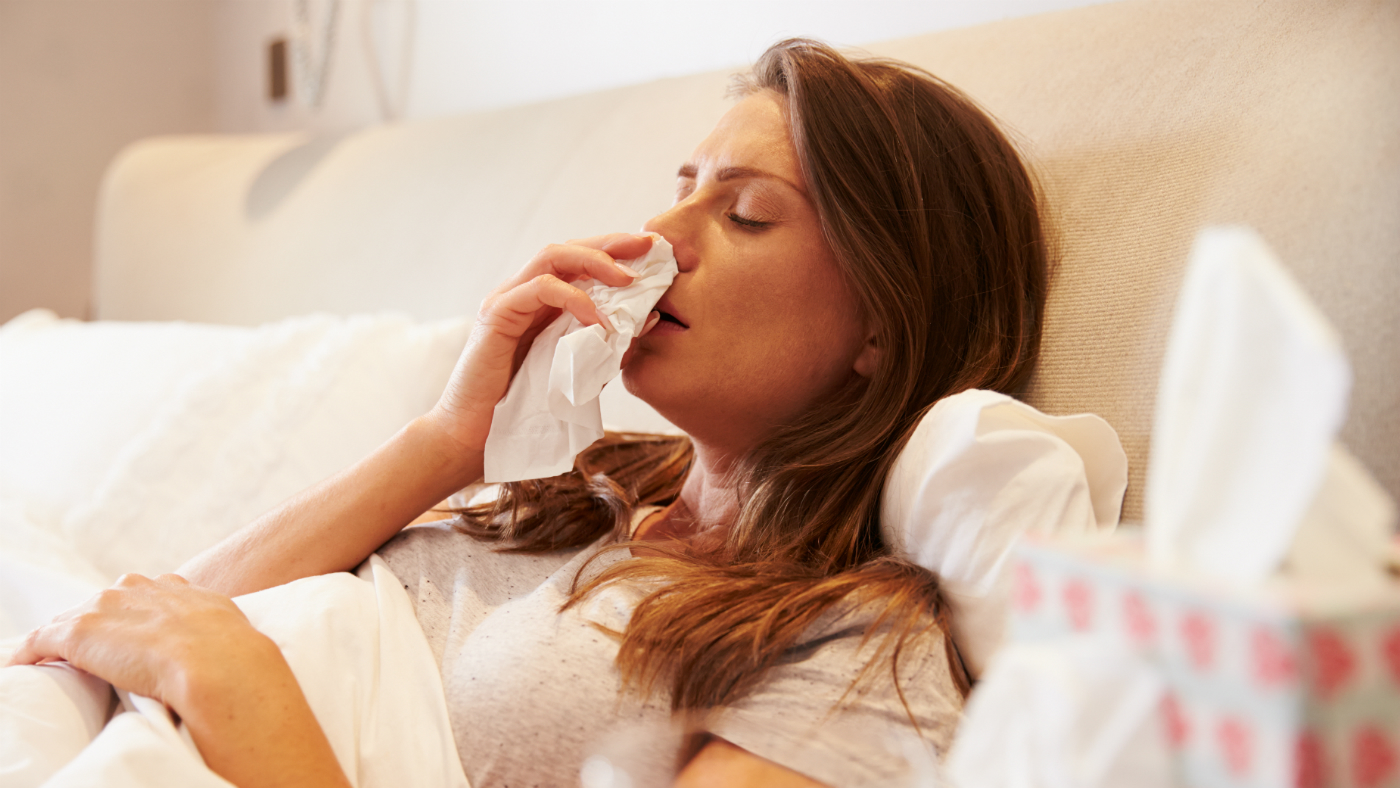Coronavirus: who qualifies for statutory sick pay?
Government under fire for suggesting workers who are not eligible should apply for universal credit

A free daily email with the biggest news stories of the day – and the best features from TheWeek.com
You are now subscribed
Your newsletter sign-up was successful
A government warning that up to a fifth of the UK’s workforce could be forced to stay away from work during the peak of the coronavirus outbreak has triggered concerns about statutory sick pay rights.
Launching the Government’s “battle plan” for the outbreak, officials said one way to slow the spread of the infection might be for employers to encourage more staff members to work from home as part of a “population distancing strategy”.
But the suggestion has drawn criticism from unions. The i news site says union bosses fear that “millions of workers will face perilous financial and health risks if they are instructed to self-quarantine”, with many gig economy and zero-hours contract workers “facing no other choice but to work if they want to keep afloat”.
The Week
Escape your echo chamber. Get the facts behind the news, plus analysis from multiple perspectives.

Sign up for The Week's Free Newsletters
From our morning news briefing to a weekly Good News Newsletter, get the best of The Week delivered directly to your inbox.
From our morning news briefing to a weekly Good News Newsletter, get the best of The Week delivered directly to your inbox.
How does statutory sick pay work?
Under current UK employment law, workers are entitled to Statutory Sick Pay (SSP) so long as they work for an employer and earn an average of at least £118 per week (£6,136 per year).
SSP is set at £94.25 a week, can be paid for up to 28 weeks and normally kicks in on the fourth consecutive day of illness. However, Prime Minister Boris Johnson today announced that emergency legislation will allow for workers to claim SSP from the first day of work rather than the fourth during the period of the outbreak.
These rules apply for workers on a part-time or fixed-term contract, but do not apply to self-employed people, as The Sun notes.
A free daily email with the biggest news stories of the day – and the best features from TheWeek.com
However, many employers offer better contractual sick pay, with provisions varying from company to company.
Under SSP rules, a sick note is required if the worker takes off more than seven days in a row (including non-working days).
What should coronavirus patients do?
If you think you have the virus, you need to let your bosses know as soon as possible that you are not able to come in.
The situation is more complicated if you are not actually sick but have been told by a medical expert to self-isolate.
Speaking on the BBC’s Today programme on Tuesday, Health Secretary Matt Hancock said: “Self-isolating for medical reasons if you’re healthy counts as being sick in the [statutory sick pay] legislation.”
However, the BBC reports that some employment lawyers disagree with this interpretation.
And if you are not eligible for SSP?
Poverty charity Turn2Us suggests that people who are unable to work as a result of the outbreak should check if they have made enough National Insurance contributions to qualify for New Style Employment and Support Allowance (ESA).
However, workers cannot claim ESA if they have more than £16,000 of savings or investments.
Justin Tomlinson, a work and pensions minister, said the current advice for workers with no sick pay who suspect they are infected with the new coronavirus was to claim Universal Credit - a welfare system that has come under significant criticism for its inefficiency, with payments often taking up to five weeks to come through.
This official advice has been ridiculed by Sue Harris, legal director at the GMB union. “For workers, or the self-employed, making a claim for universal credit is laborious and lengthy,” she said.
“If the Government is serious about containing the virus, it has to take steps to make sure people are able to self-isolate without the added concern of how they will pay their bills.”